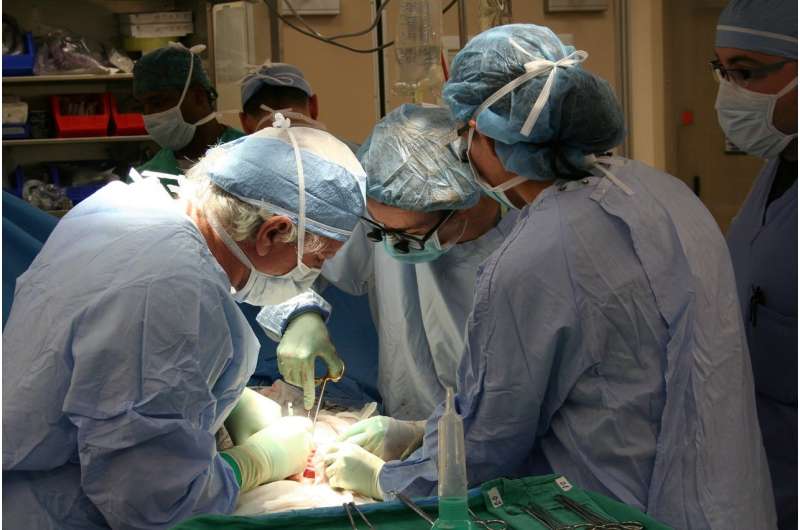Study: Multidisciplinary transplantation evaluation shows promise for older adults

Older adults with blood cancers can benefit from a team-based, holistic evaluation before undergoing transplantation, according to a new study published today in Blood Advances. The study, which reported on a multidisciplinary clinic (MDC) at the University of Chicago Medical Center, found that patients treated with this approach experienced better transplantation outcomes and survival rates.
Most blood cancers that can be treated with hematopoietic cell transplantation (HCT) more frequently occur in patients 60 years of age and older, and HCT has been shown to be relatively effective for medically cleared older patients. Yet many physicians are hesitant to refer older patients for transplant due to concerns about potential complications. The MDC aimed to improve patient resiliency prior to transplant so that older patients are not excluded from the treatment based on age alone.
A team of care providers—including transplant physicians, transplant nurse practitioners, geriatricians or geriatric oncologists, infectious disease physicians, dieticians, and social workers—was assembled for patients being evaluated for transplant. Patients took self-assessment surveys on their physical, social, and emotional health, as well as clinic tests on mobility and cognition. The multidisciplinary team used the results to coordinate their recommendations and create integrative, individualized treatment plans.
Initially, the team at the clinic assessed patients 60 years of age and older being evaluated for allogeneic HCT. Based on the results, the approach was later expanded to include patients 70 years of age and older being evaluated for autologous HCT as well as CAR-T therapy. Some younger HCT patients were also electively referred to the clinic by their physician. The median age of all 247 patients referred to the clinic was 67.9 years.
Researchers found that compared to patients who had undergone transplants at the center prior to the establishment of the MDC, patients in the multidisciplinary setting experienced fewer complications, fewer admissions to nursing facilities, shorter hospital stays, and better survival. Moreover, the improved outcomes occurred without a reduction in the transplant regimen strength: 90% of autologous transplant patients 70 years and older received full doses of the drugs administered as preparation for HCT.
"We can help the patient achieve better results without sacrificing the treatment," said Andrew S. Artz, MD, of City of Hope National Medical Center, formerly of University of Chicago Medical Center, and the study's senior author. "In the past, physicians might give a lower intensity regimen or not offer transplant as their main treatment option. Now, we can strengthen the patient so we can offer the treatments that best address not only the patient's disease but also their individual needs and goals."
Although the findings are promising, the study is not a randomized controlled trial, so its approach warrants future research. The researchers hope that if subsequent studies confirm the findings, there will be wider, safer use of transplantation among older adults. "Our main goal is to allow more older patients who could benefit from transplant to be able to consider it as a treatment option. Deploying staff in this type of coordinated pre-transplant approach requires organization and effort, but we hope the upfront investment of time and energy might prevent more expensive problems later," said Dr. Artz.
More information: Benjamin A. Derman et al. Results from a multidisciplinary clinic guided by geriatric assessment before stem cell transplantation in older adults, Blood Advances (2019). DOI: 10.1182/bloodadvances.2019000790

















